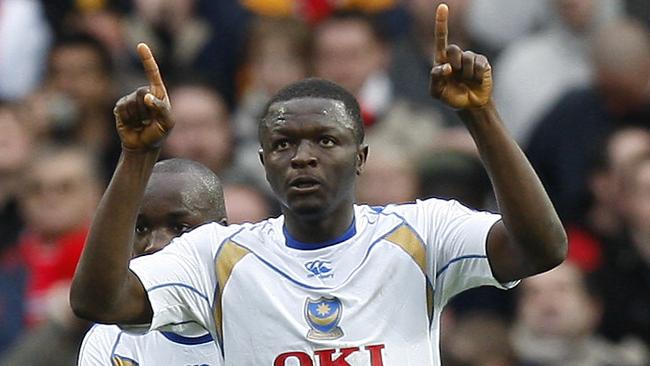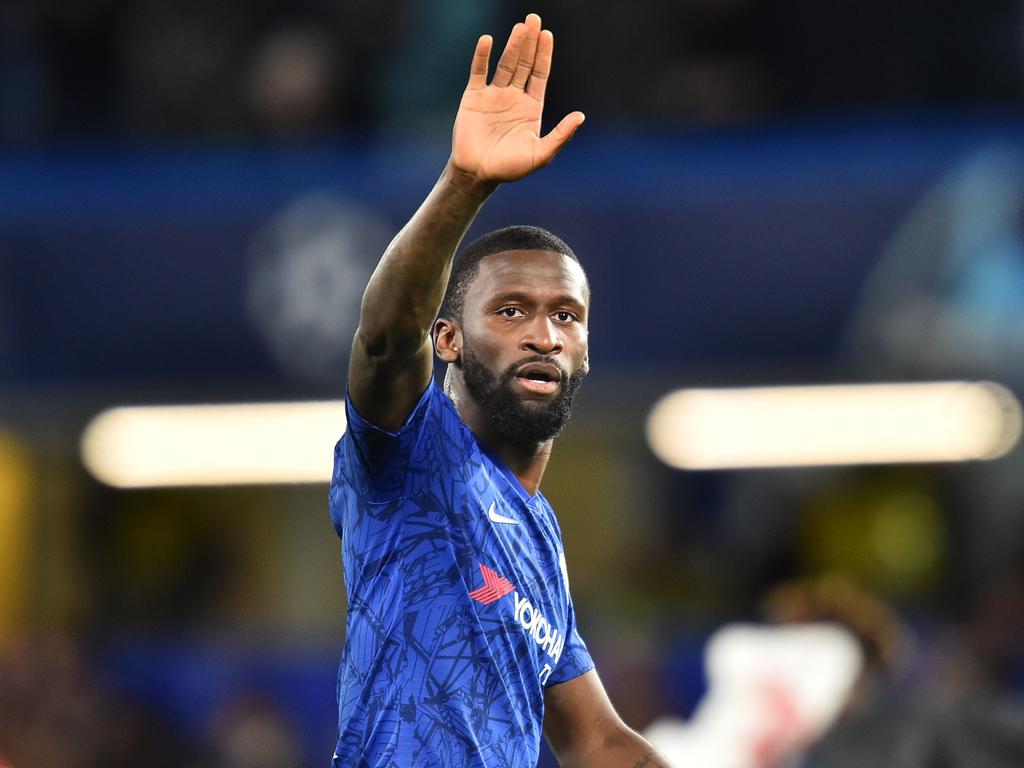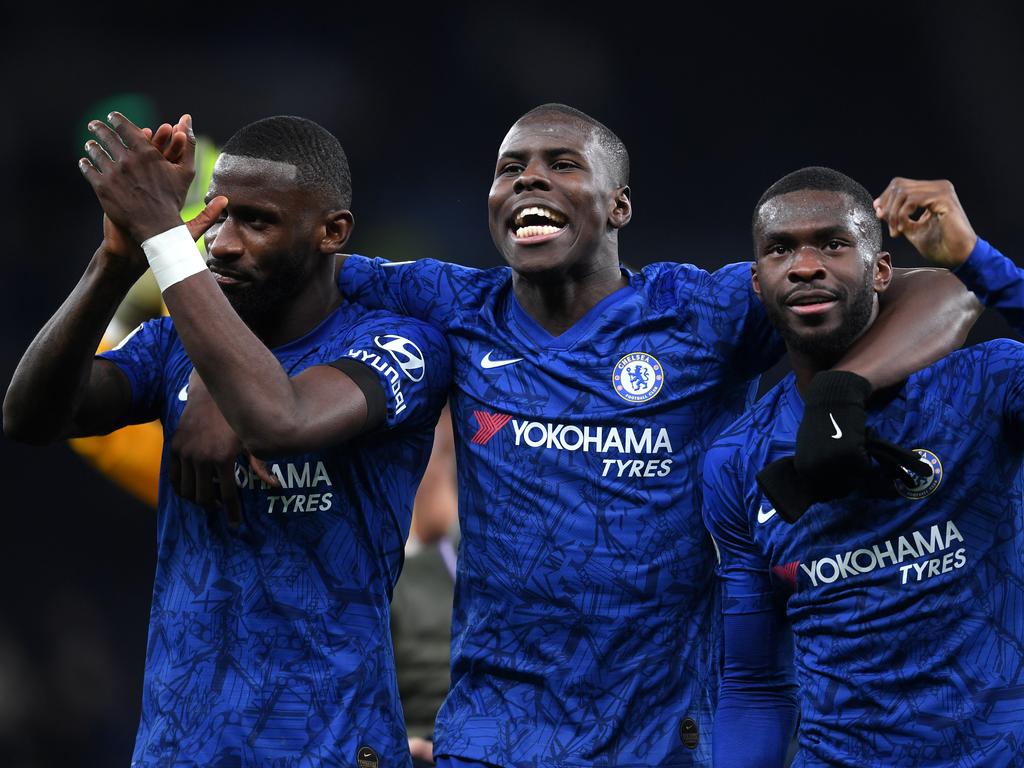Is a mass player walk-off the next weapon against racist abuse?

As Darren Lewis, one of the few black reporters in English soccer’s press boxes, wrote passionately and eloquently in the Daily Mirror this week, English football may offer up plenty of sympathy but how can it properly hope to empathise with the victims of abuse as long as there are no black referees in the professional game, just a handful of black managers and no black administrators in senior positions at the FA or Premier League?
In those circumstances, it is even easier to make the argument that the players themselves must be empowered to confront the problem — specifically by walking off the pitch as the clearest possible protest.
After years of mounting anger that other measures — protocols, discussions with the referee, announcements to the crowd, weak fines — are ineffective (in London, never mind Bulgaria) in driving racism out of stadiums (at least in an audible or visible way), then we can see how we have reached a point where many commentators, most recently Gary Neville, advocate a spontaneous walk-off.
What a hugely symbolic moment it would be but, as this starts to feel a very possible outcome rather than just a hypothetical discussion, a few questions nag not so much about the action itself but the need to ensure the victim is protected. Calling for a walk-off is easy — more complicated is to consider the ramifications and whether the burden is falling on the right people if the abused have to take the lead.
To be caught up by practical concerns might seem to be missing the point when the symbolism of players leaving the field could be so arresting; the ultimate declaration that enough really is enough.
Yet if we were to try to put ourselves in the shoes of Antonio Rudiger, who reported hearing monkey chants during Chelsea’s win away to Spurs last Sunday, we may wonder how it would work in practice.
If Rudiger says he is leaving the field, can he count on the unequivocal support of all the other players to instantly follow him? We certainly do not want to end up as Sulley Muntari, the former Portsmouth player, found in 2017 when, playing for Pescara, he ended up departing on his own in protest at racial abuse from Cagliari supporters and was sent off (it took an appeal to the Italian FA to overturn the red card, although he still suffered a one-match suspension).
Professional Footballers’ Association chairman Ben Purkiss suggested this week in The Times that dialogue between captains could help to bring about a situation where players head off irrespective of UEFA or the Premier League protocols.
If the players do walk off, is this with the intention of a short, sharp shock — say a five-minute period for everyone to reflect — or abandoning the game altogether? Someone is going to have to decide and relay the reasons effectively to a crowd of, say, 60,000.
The hope is that this focuses minds — and improves self-policing among supporters — though, depressingly, it cannot be ruled out that copycat idiots start trying to disrupt matches once a precedent is set. What happens to the result of an abandoned game is nothing compared with the global impact of such a stand but we cannot pretend that such issues do not exist if we want the conversation to focus on what really matters — racism and how to make it culturally beyond the pale.
We do not want weeks of squabbling over whether a result stands or whether the team with offending fans forfeits the match (Son Heung-min was abused, as well as Rudiger) or how and when to arrange a replay. Under UEFA rules, a game suspended by the referee would be forfeited 3-0 by the team with abusive supporters but an unauthorised walk-off would put the departing side in trouble.
Ideally players of both teams would leave in solidarity but we do not want, on a bigger scale, what happened in October when Haringey Borough led a walk-off against Yeovil Town following abuse of Valery Pajetat, the Haringey goalkeeper, during an FA Cup fourth qualifying round tie.
The FA insisted the game be replayed but after it was won by Yeovil, Haringey manager Tom Loizou angrily complained that their opponents should have been thrown out the competition. That would not be an edifying debate with the huge profile of the Premier League.
Of course, it is easy to understand why a walk-off is being openly discussed. In little more than a year, a banana has been thrown at Pierre-Emerick Aubameyang, the Arsenal forward, during the north London derby. Raheem Sterling was racially abused at Stamford Bridge.
Millwall fans sang that they would “rather be a Paki than a Scouse” during an FA Cup tie with Everton. As well as the Haringey and Yeovil incident, alleged monkey gestures were made at Manchester United midfielder Fred during a derby against Manchester City.
Players are highly sceptical of the effectiveness of UEFA’s three-step protocol and, while Rudiger’s complaint did lead to an unprecedented pause and announcement, the Premier League’s regulations are written in a way that suggests that protection of the brand is as important as confronting the problem. Government promises of another inquiry seem so empty, leaving players to consider something much more powerful than another #hashtag campaign.
With the pitch one area where racial minorities are well represented, and players such as Sterling having found their voice, the walk-off would be such a statement — and perhaps raising questions about practicalities and potential repercussions is dwelling on the small stuff, itself showing a lack of empathy.
Maybe black players simply need to feel like there would be unequivocal backing for any action. But if 2020 is to be the year when one says enough is enough and heads for the dressing room, we need to be sure he is not walking into a realm of secondary arguments and complications.
THE TIMES





To be advising black, Asian and minority ethnic players how to handle racist abuse from the terraces is to tread into difficult territory when it is coming from largely white administrators, white pundits and, yes, white journalists.